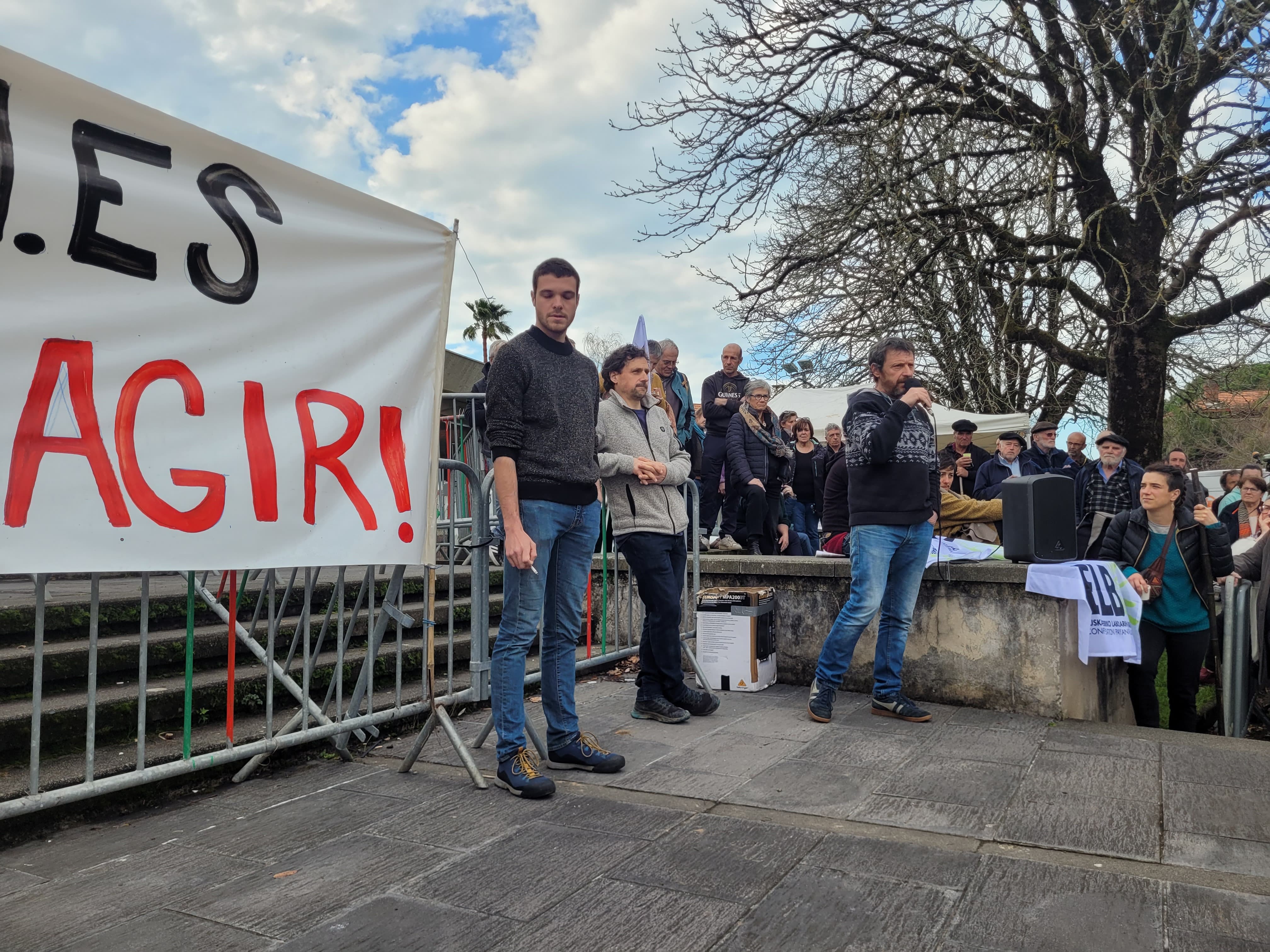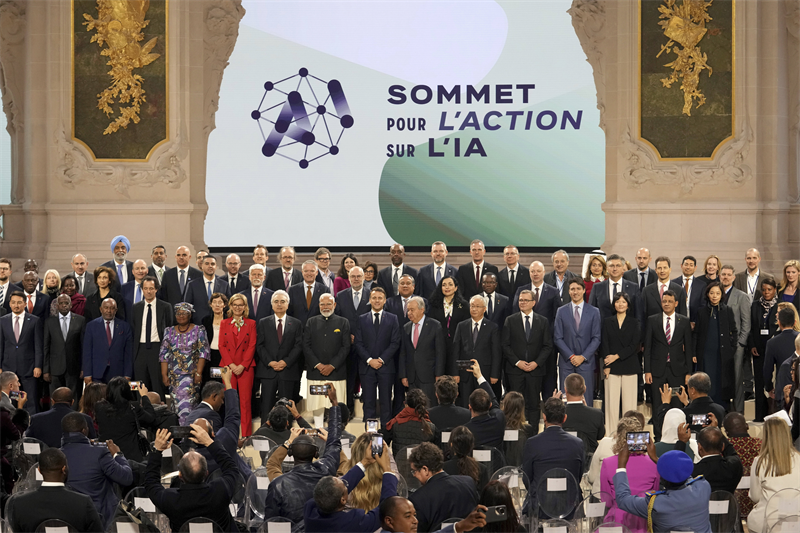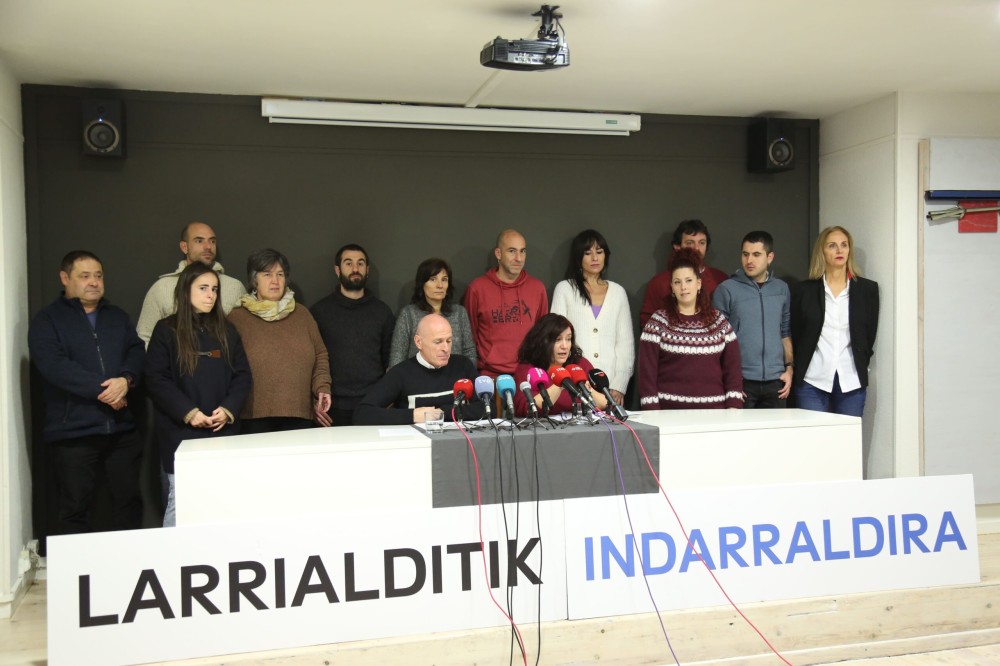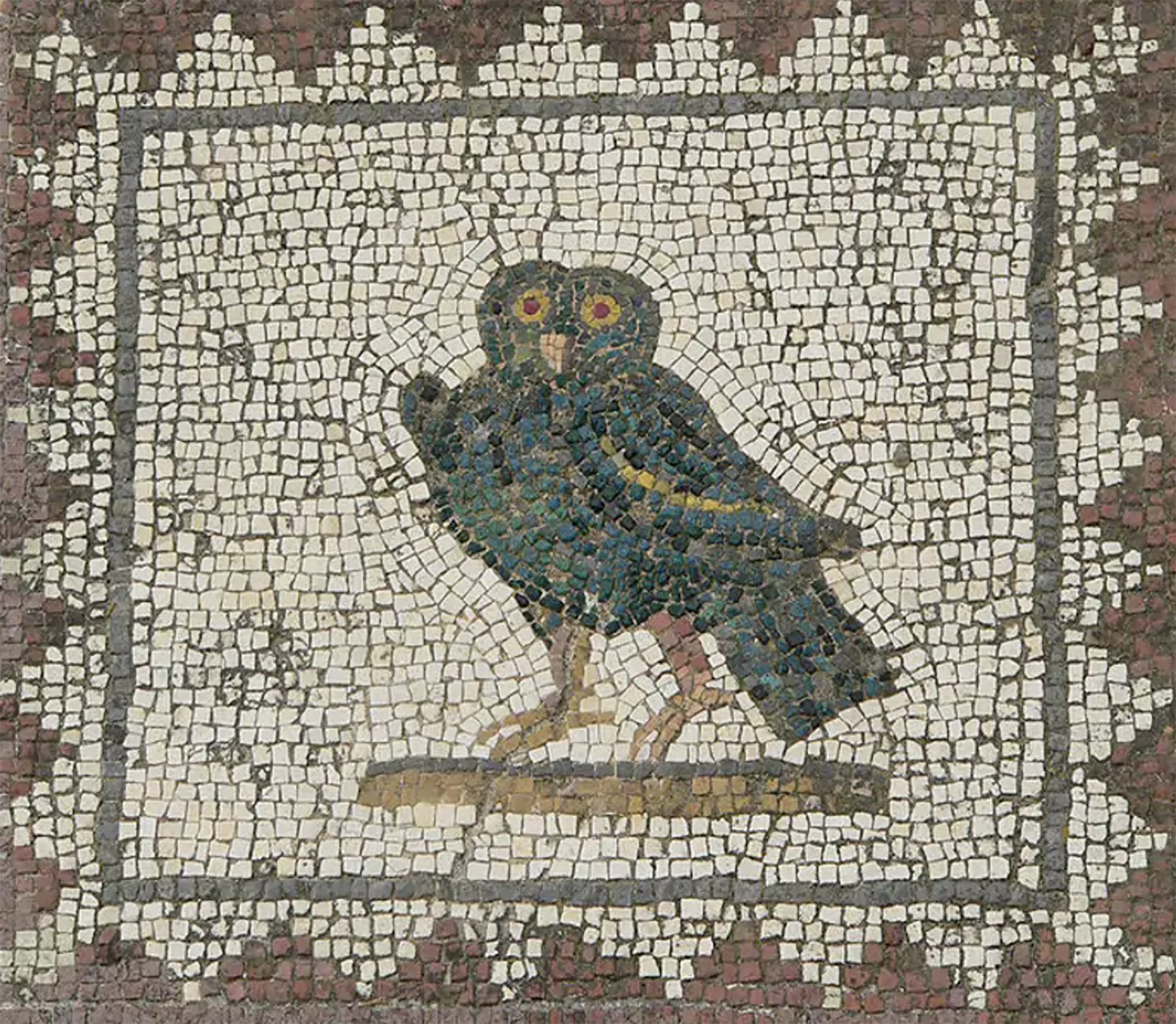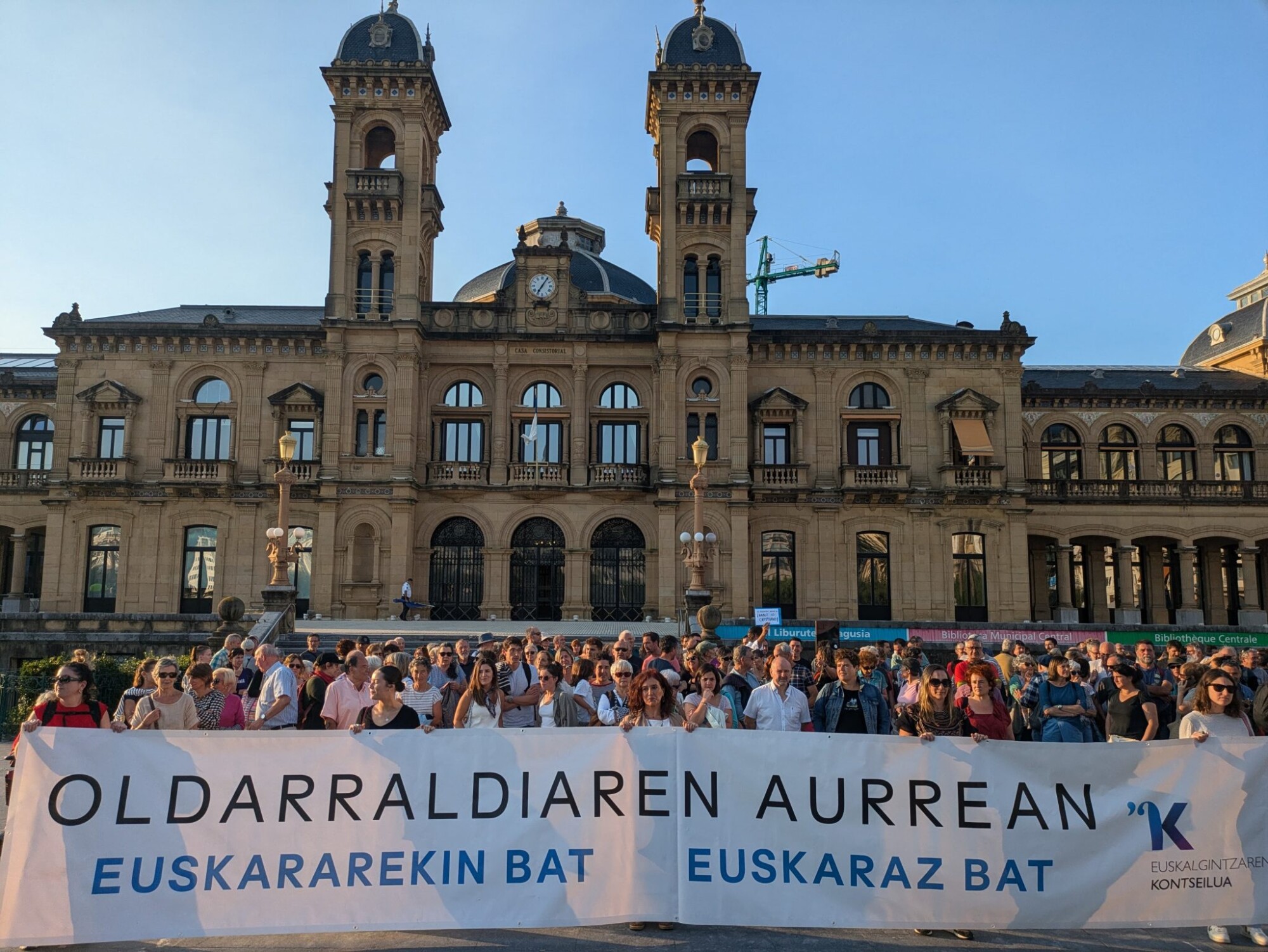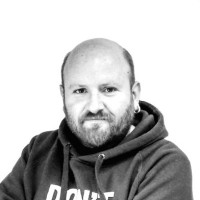The leader
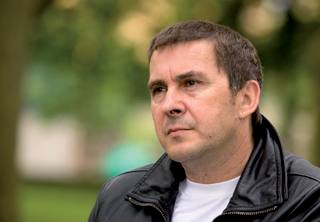
Otegi has undoubtedly had many requests for interviews, but this time he gave it to El País and not to any journalist of this newspaper, but to John Carlin. The best-known work of this British journalist is Playing the Enemy, in which he explores in depth how the peace process in South Africa was nurtured. Carlin knows the corners well. Nor should we forget that the South African Brian Currin is the public facilitator of international mediation.
One might think that the dialogue also has the approval of the PSOE and the quick and optimistic response of José Luis Rodríguez Zapatero also reinforces this aspect. Whether there is a script or not is a different matter, but it seems that Zapatero is interested in getting Spanish public opinion to pick up what Otegi thinks. It is also through this dialogue that the international community receives the opinion of the patriotic left from its leader.
Yes, the leader. And this is probably one of the most important parts of the conversation, of clearly expressing Otegi’s leadership. A prisoner rarely speaks at this level and with such consistency, provided that he is not in the name of the Prisoner Collective or, on the contrary, located outside it. And Otegi makes it clear from the beginning that he speaks as a leader of the Patriotic Left. Among other things, he has been meticulous about the nature of the new strategy of the patriotic left: “Only peaceful and democratic paths, there is no other path to independence.” It also excludes a possible attack, the revolutionary tax, the street struggle... and such from the political strategy of the patriotic left. And ETA also insists very precisely on what it should do: “There is a mandate from the grassroots of the Patriotic Left that does not allow ambiguity and must be fulfilled.” Most of what he has said has often been brought to the table by several leaders of the Patriotic Left, but the fact that he has said it now and in this form has another value for public
opinion, especially for national and international public opinion.
Otegi will be sentenced on 11 November, along with Joseba Permach and Joseba Alvarez, this time for having made the Anoeta Proposal in 2004 and, among other things, for “glorifying terrorism”. Last year he was arrested for reorganizing the ETA – if the ETA and the Union are one, according to the law of Spanish Justice – at this time. Immersed in this thesis, Otegi reorganizes ETA so that it abandons the armed struggle. There's the crime. “But of course, they are strategies for elections” (the thesis concludes).
However, for a growing majority of the population, the story becomes more and more unbelievable. It is true that the patriotic left has major problems of credibility with society, but there is no doubt that this patriotic left is gaining credibility in Basque society from week to week. This Otegi dialogue strengthens this credibility even more, helps to consolidate the increasingly widespread message in Spain – “The Union is serious” – and shows itself as a leader in the Patriotic Left.
A leader who is imprisoned like Mandela. And looking abroad – and without wishing to make any personal comparison between the two – the shadow of this image extends. Unless it is subject to the repressive policy of the Ministry of the Interior, it is difficult to understand how it could be one of the main protagonists of this evil path that the nationalist left is carrying out in prison to abandon the armed struggle.
This dialogue has consolidated the Otegi and, from now on, the prison also consolidates it.
Irailaren 9ra gibelatu dute Kanboko kontseiluan gertatu kalapiten harira, hiru auzipetuen epaiketa. 2024eko apirilean Kanboko kontseilu denboran Marienia ez hunki kolektiboko kideek burutu zuten ekintzan, Christian Devèze auzapeza erori zen bultzada batean. Hautetsien... [+]
Oinarrizko maia komunitateko U Yich Lu’um [Lurraren fruitu] organizazioko kide da, eta hizkuntza biziberritzea helburu duen Yúnyum erakundekoa. Bestalde, antropologoa da, hezkuntza prozesuen bideratzaile, eta emakumearen eskubideen aldeko aktibista eta militante... [+]
The argument of a syllogism has three propositions, the last of which is necessarily deduced from the other two. It is with this deductive logic that I can analyze, for me, the long and traumatic socioecological conflict in Carpinteria that is taking place in Navarre.
The... [+]
Poloniar ikerlari talde batek Sevillako Italica aztarnategiko Txorien Etxea aztertu du, eta eraikinaren zoruko mosaikoak erromatar garaiko hegazti-bilduma xeheena dela ondorioztatu du.
Txorien etxean 33 hegazti daude mosaikoetan xehetasun handiz irudikatuta. Beste... [+]
I have recently worked in class on Etxahun Barkox’s beautiful and touching cobla. The bad guy! The afflictions of the house began because of the creation of the “praube with beauty”, but in seventeen years she had entered the sea of misfortune, having to abandon the girl... [+]
We have renewed the dialogue in the secretariat of the faculty, for the most auspicious: they are far away, for their enrollment, the times when only the students came. The trend has changed for a long time, and parents – most notably mothers – are taking an increasingly... [+]
Gure lurraldeetan eta bizitzetan sortzen diren behar, desio eta ekimenen inguruan gero eta gehiago entzuten dugu harreman eta proiektu publiko-komunitarioak landu beharraz, eta pozgarria da benetan, merkaturik gabeko gizarte antolaketarako ezinbesteko eredua baita. Baina... [+]









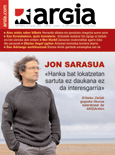


_2.jpg)



